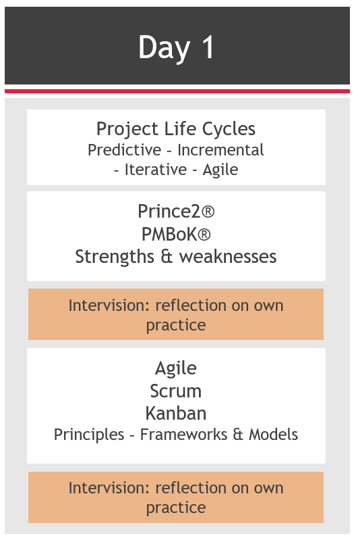Discovering Prince2®, PMBoK® (PMI), Agile and Scrum
Are you interested in the different approaches for managing projects? Do you want to understand what they have in common and where they are different? Do you want to be able to make a choice for a good approach in different contexts? Then the “Project Management methods & techniques” training fits your needs!
Training type: Open session and In Company
Timing: 1 day
This training will enable you to
Pedagogical approach
This training uses the 4 types of Project Life Cycles as an umbrella to position the different topics.
Each theme is first introduced on the basis of the most up-to-date field knowledge and various examples are added from the own experience of the trainer. We provide you with extra reference material and posters to understand each theme.
The concepts and methodologies are discussed after the explanation of the trainer in order to understand proper application areas for each of them. The participants can interact about their own understanding and experience of the concepts.
The workshops are rounded up by feedback and debate sessions that allow everyone to put their own practice into perspective.
Content
This training is aimed for
No prerequisites are required.
Typical program

